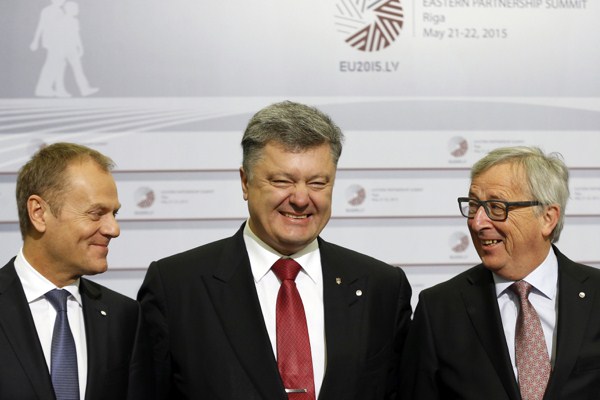In May 2008, the foreign ministers of Poland and Sweden proposed the Eastern Partnership, an initiative designed to foster ties between the European Union and six former Soviet republics: Belarus, Ukraine, Moldova, Georgia, Armenia and Azerbaijan. That August, a brief war broke out between Georgia and Russia, after which Russia formally recognized the Georgian breakaway enclaves of Abkhazia and South Ossetia as sovereign states. Seven years later, the region remains divided along these lines, with the EU offering a possible future for Russia’s former satellites, and Russia itself using military force and separatist proxies to prevent that from happening.
Last week, representatives from the EU and the six Eastern Partner states met in Riga, the capital of Latvia—one of three former Soviet republics to join the EU. The two-day summit was intended to stress the EU’s ongoing commitment to the Eastern Partnership. While the summit yielded some tangible results—roughly $2 billion in loans to shore up Ukraine’s struggling economy, grants to small businesses and even a gas deal among several poorer EU members aimed at improving energy security—the overall mood was cautious.
“The Eastern Partnership isn’t an EU enlargement policy instrument,” said German Chancellor Angela Merkel, who made clear that EU membership remains a distant prospect for all the Eastern Partners. European Council President Donald Tusk, who until last year led the Polish government that helped launch the initiative, concurred, stating, “Nobody promised that Eastern Partnership would be an automatic way to membership in the European Union.” Visa-free travel to the EU, one of the key goals sought by Ukraine and Georgia, will remain off the table until significant structural reforms are passed. The reform process has been halting, especially in Ukraine, which remains mired in corruption and political dysfunction since the overthrow of President Viktor Yanukovych and his pro-Russian government in February 2014.

